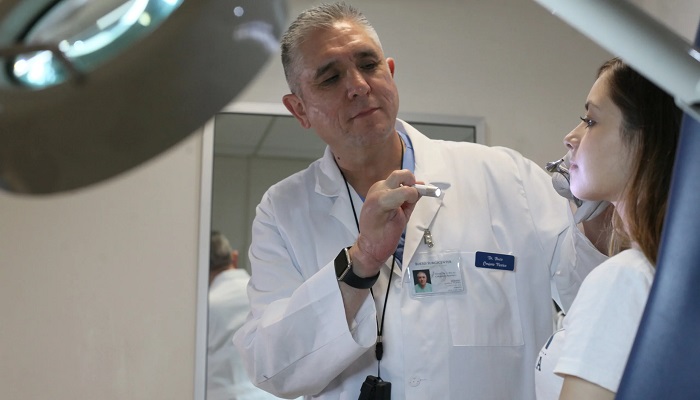US panics as Mexico cosmetic surgery-related fungal meningitis kills 2
As a result, two cosmetic clinics in the city of Matamoros, Mexico, have been closed down
May 27, 2023

Authorities in US and Mexico have co-appealed to the World Health Organization (WHO) to intervene and declare a public health emergency due to a fungal meningitis outbreak associated with cosmetic surgeries in Mexico, BBC reported.
The Centers for Disease Control and Prevention (CDC) has reported two deaths from meningitis among individuals who underwent surgeries involving epidural anaesthesia. Currently, approximately 400 people in the United States and Mexico are under monitoring.
As a result, two cosmetic clinics in the city of Matamoros, Mexico, have been closed down.
Both US and Mexican authorities are advising individuals who had surgeries involving epidural anaesthesia at either the River Side Surgical Center or Clinica K-3 since January to undergo evaluation, even if they are not experiencing any symptoms at present.
The CDC has identified 25 individuals in the US with "suspected" or "probable" cases of fungal meningitis.
Many US citizens travel to Mexico for cosmetic procedures like liposuction, breast augmentation, and Brazilian butt lifts, which require the administration of anaesthesia near the spinal column.
According to Dallas Smith from the CDC, the medications used during anaesthesia in the current outbreak may have been contaminated either in the epidural itself or in other medications used during the surgeries, such as morphine.
He also noted that there is currently a shortage of medications in Mexico, which raises the possibility of a black market that could have introduced contaminated medicine.
In October of the previous year, a batch of local anaesthetics commonly used in operations, including Caesarean births, was found to be infected with the same fungus. This resulted in the deaths of 39 individuals in the Mexican state of Durango.
Early symptoms of fungal meningitis typically include headaches, followed by fever, vomiting, neck pain, and blurred vision.
Although fungal meningitis is not contagious, it can quickly become life-threatening once symptoms manifest. The condition can be treated with antifungal medicines.
It is common for Americans to travel to Mexico for affordable medical services. The declaration of a public health emergency by the WHO is typically done when a disease spreads across borders, necessitating a coordinated international response to control its spread.











